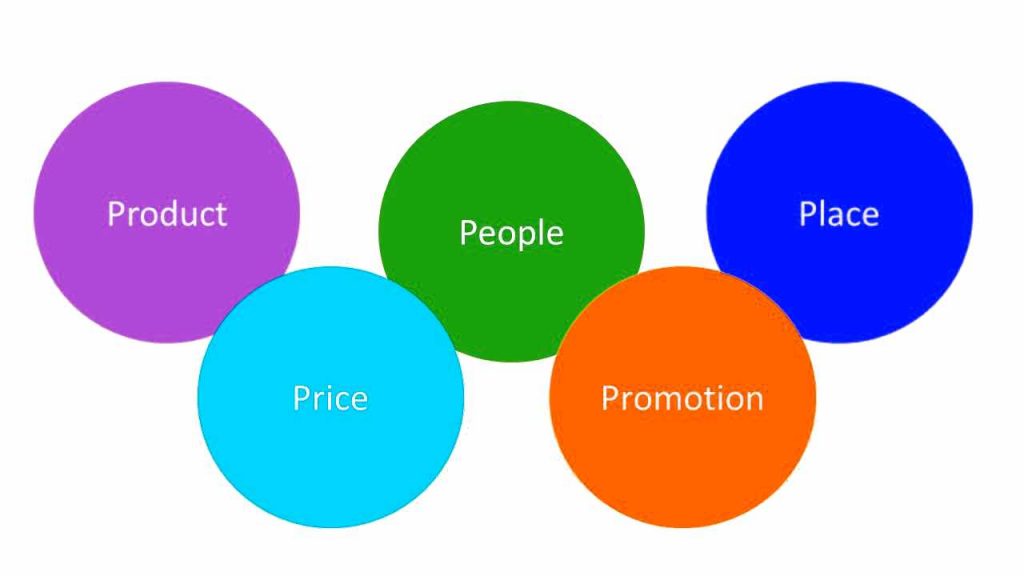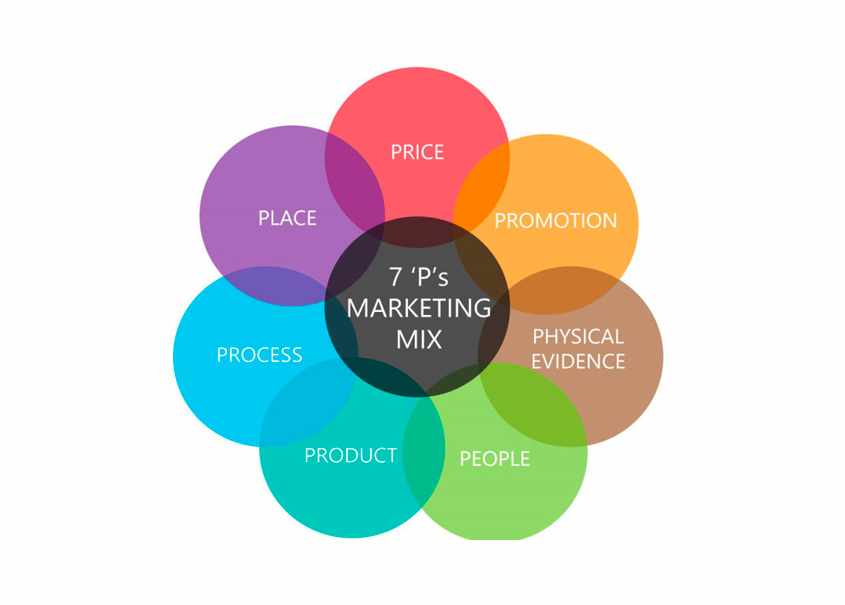The article talks about:

What it is. The concepts of marketing - historical milestones of development of philosophy of promotion of goods and services in the market. They were first talked about in 1860. Until today, they have been greatly modified, and what was relevant in marketing before is no longer relevant today, as new needs have come to the fore.
What are the different types? There are classic concepts, which are only studied at the university. In great demand are modern concepts, more designed for customers, their interests, to best fit the current conditions. You can choose a ready-made promotion scheme or combine the components, creating your own.
The term "marketing concept" is considered as a business philosophy and a system of ideas, oriented on the management of the production of products, their sales in the existing market conditions and competitive relations. Marketing concepts are aimed at generating income from entrepreneurial activity and satisfaction of customer needs.
On their basis the main tasks are formed, which should be solved by the enterprises in order to fulfill the planned plans of selling goods and services, taking into account the peculiarities of the product and the situation on the market.
The development of marketing concepts is reflected not only in theoretical views and methodological developments. Such evolution changes the structure of marketing ideas. It is possible to distinguish five basic concepts of marketing, formed at different stages of business and society development in response to the emergence of new market trends and demands of the environment.
Of course, marketing has changed significantly as a result of its development, but even today each of the main concepts can be used to some extent by companies to solve their tasks.

Marketing begins its history with the idea of improving production, or the manufacturing concept of marketing. It was developed between 1860 and 1920. According to this concept, success is achieved by an enterprise that has the ability to mass produce products at the most profitable cost. The goals of the organization in this context are as follows:
The peculiarity of this stage in the development of the marketing concept is the mass production of the same type of goods, so conveyor production, first introduced by Henry Ford, is rapidly developing.
The next stage in the development of marketing is associated with ideas aimed at improving the products produced. The product concept evolved between 1920 and 1950.
As the market became saturated with homogeneous products, buyers began to form a need for goods of higher quality. In accordance with the product concept, manufacturers had to pay attention to the product itself and its consumer qualities. Features of the objectives of enterprises and their marketing at this stage:
Increased advertising activity (providing buyers with information about the benefits of the product).
Analysis of the needs of buyers.
It would seem that marketing development is going in the right direction, but there is a sly trap hiding in this concept. By getting carried away with improving its product, the manufacturer may not notice how important developments in science and technology have emerged. As a result, it is outpaced by more agile competitors, etc. Product marketing can lead to continuous improvement of a product that the customer is no longer interested in.
Take Kodak as an example. The company was so obsessed with producing and improving its film cameras that it missed the advent of digital cameras, and this omission led to huge losses in the market.
Similar stories occurred with brands such as Motorola and Nokia. They were the leading manufacturers of cell phones, but they "missed" the advent of smartphones, which led to a loss of significant market share, and the leading position was given to competitors.
The goal of the third marketing concept is to develop more intensive commercial tools aimed at selling the product. The sales idea gained traction between the 1930s and the 1960s. At this stage the market is filled with products, but not always of high quality, and the buyer does not always feel an acute need for them (goods of passive demand).
At this stage, the market is filled with products of average quality and goods of passive demand.
The key task for firm management and marketers was to increase the number of sales of existing products, to keep them informed about new products, and to find distributors. Features of the sales concept:
Focus on increasing sales. For the decision of this problem special trainings for employees are developed, the motivation of employees is increased, more modern methods of trade are formed.
Development of after-sales service of products (especially household appliances and cars).
To the positive sides which appeared within the sales idea, it is possible to refer occurrence of high-quality advertising, introduction of post-sale service, development of psychology of sales and sales technologies.
To the negative factors of the sales marketing concept can be attributed the point that it does not assume the presence of high professionalism in the organization of sales and sincere concern for consumers. Salespeople may pressure consumers to sell their products at any cost. Customers may have a negative attitude towards a particular firm, and subsequently the company will lose customers.
The next stage of the marketing concept is related to the development of consumer ideas. The concept of consumption began to form in the early fifties of the last century and was the very first customer-oriented idea.
The concept of consumer marketing is a kind of revolution in the philosophy of management system. It is associated with the transition from a seller's market, where a large number of consumers of a small range of goods and services acted, to a market in which supply already exceeds demand.
Companies are beginning to pay attention not only to their needs, but also to the demands of consumers. They are examining whether the product they are selling can meet all of the customer's needs.
Most companies are actively shifting to a consumer concept. They are no longer chasing the number of sales, but are creating the conditions to establish a long-term relationship with loyal customers, keeping them satisfied with the product they have purchased. Features of the consumer concept:
Using the power of marketing to increase profitability and customer satisfaction.
Already today, consumer insights play a critical role in business development. The marketing department is separated from the departments dealing with sales and integrated with the structures responsible for planning, work with regular customers, expansion of sales markets, etc.
At the end of the 20th century, the concept of marketing acquires a social and ethical orientation. The main reasons for this transformation are the emergence of new diseases, environmental problems, the pollution of the planet, etc.
According to the socio-ethical concept it is necessary not only to satisfy the needs of the buyer, but to do it in such a way as to avoid negative consequences for him, the environment and the environment as a whole.
Today we see that big companies create the latest technologies that reduce the emission of harmful substances into the atmosphere. Producers make warning notices about the harmful effects of certain products (smoking, alcohol), create environmentally friendly products, donate money to charity, etc.
This concept requires a balance of three factors:
The profitability of the firm, the needs of customers, and social well-being. It is worth noting that this idea is not yet as popular as we would like it to be. It is used only by a small number of firms. One would like to believe that such examples will grow and more companies will appear that adhere to this concept.
Modern marketing ideas are based on all the major marketing concepts of the 20th century. They are an extension of the classical theories. Thus the new approach to realization of tasks of marketing considers also more new criteria.
Back in 1981 B. Booms and M. Bitner proposed the idea of extending the concept of marketing-mix 4P. Three additional P's were introduced, resulting in the birth of the modern 7P concept.

In terms of theory we can say that 7P is an expanded and improved version of the 4P concept.
Today this expanded version has become very popular in most areas of business. The very idea of the 4 basic elements of the concept of marketing mix has changed.
The concept of marketing 7P is the most effective tool for evaluating the complex of production and marketing, unlike the 4P, because it more accurately demonstrates the quality and effectiveness of companies' marketing.
Note that the three additional P's can be attributed to the internal parameters of the company's activity, while the first 4 P's are external criteria. The 7P concept proves that everything that happens inside production is directly related to marketing activities, so not only external but also internal marketing is important.
Analysis of the 7P marketing concept demonstrates that it is more relevant to all business requirements in the field of services. This area has become today the most important area of application of marketing tools.
So, now instead of the traditional 4P approach, the concept of marketing mix 7P is applied:
The components of the concept of marketing 7P are used to attract the attention of the target audience.
The new marketing concept is based on an absolute understanding of the market system, the desires of buyers and possible changes in the future. Commodity production and sales are closely related to the market and directly depend on it.
Different marketing concepts may differ in the degree of efficiency in today's environment, but a company can apply a certain combination, made up of individual elements of different ideas, in order to make its own development plan. To form a marketing policy, you should try to find answers to several questions:
Entrepreneurs need to regularly analyze market conditions and competitive metrics to keep their business up to date. The marketing concept is determined based on the benefits a business can gain and the length of time it seeks to be in the marketplace. It is not formed forever, but adjusts to changing situations.
The marketing concept acts as a set of ideas for the implementation of the product. It is based on specific goals which take into account the economic success and social responsibility of the business in a particular market segment.
Can a business develop effectively without a marketing concept? No, because the business works anyway, taking into account such ideas, only this process becomes unmanageable. When choosing the basis for a marketing concept, the enterprise determines a set of next steps in the implementation of the product and interaction with its consumers.
 What is P R bond?
27/11/2023
What is P R bond?
27/11/2023
 What is Compulsory Convertible Debentures?
27/11/2023
What is Compulsory Convertible Debentures?
27/11/2023
 Dynamics of Central Asian Economies
17/11/2023
Dynamics of Central Asian Economies
17/11/2023